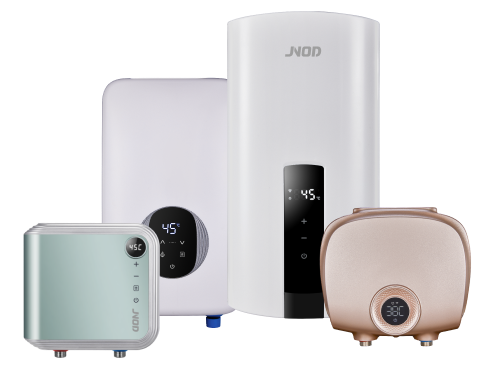Residential and commercial water heaters may appear similar but they serve different purposes. Homeowners use residential water heaters for their daily hot water needs like bathing, laundry, and washing dishes among others. Conversely, commercial water heaters are made to provide hot water in large quantities for businesses such as apartment buildings, hotels, restaurants, and hospitals. It is important to note these differences whether you are a homeowner who wants to upgrade your system or a business owner planning a new installation. This article will help you understand the differences between them so that you can select the right type of water heater that best suits your needs.
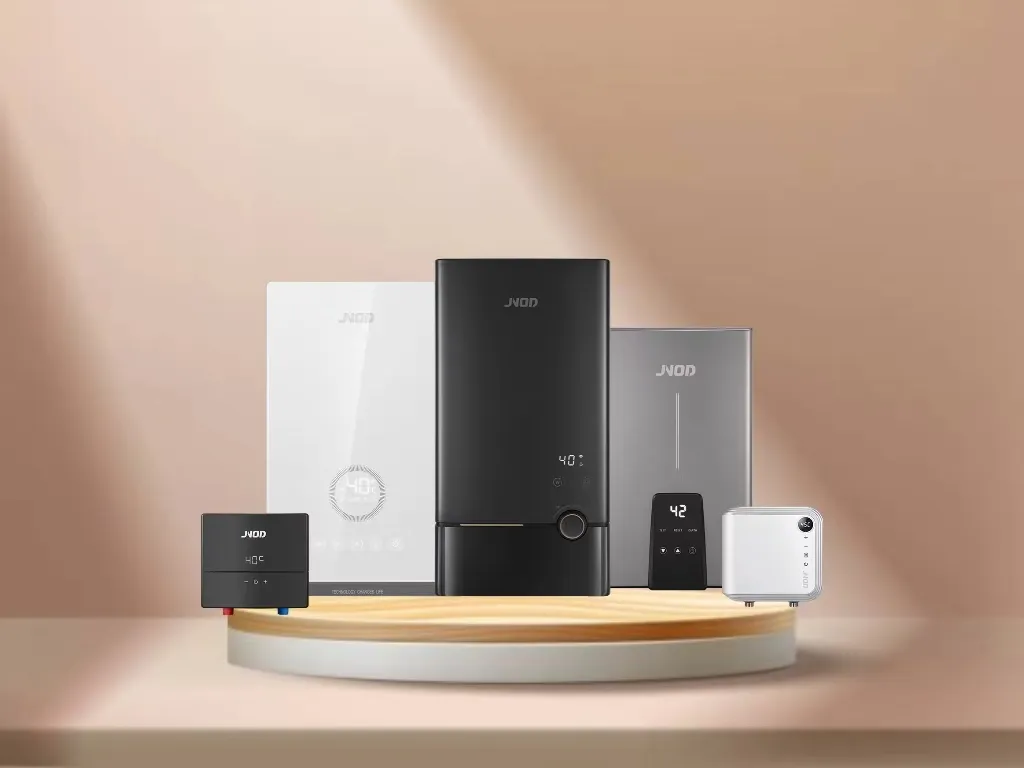
Difference Between Commercial and Residential Water Heaters
Commercial and residential water heaters differ in many aspects, including capacity and size, energy efficiency, temperature range, output water pressure, cost, durability, and certain safety standards.
| Feature | Commercial Water Heaters | Residential Water Heaters |
| Capacity and Size | >100 gallons | 30-80 gallons |
| Tankless Flow Rate | >10 GPM | 2-5 GPM |
| Energy Efficiency | High efficiency, reduce costs | Lower utility bills |
| Temperature | Up to 180°F (82°C) | 120°F (49°C) – 140°F (60°C) |
| Water Pressure | High output, stable pressure | Adequate for household use |
| Cost | $2,000-$10,000+ | $500-$2,500 |
| Tankless Cost | $3,000-$7,000 | $1,000-$3,000 |
| Durability/Lifespan | 15-20 years | 8-12 years |
| Compliance | ASME standards, local codes | DOE standards, local codes |
Capacity and Size
Capacity and size are the most distinct aspects of commercial and residential water heaters.
Storage Tank Water Heater
Commercial storage water heaters often exceed 100 gallons, with some capable of holding over 500 gallons. These units have higher BTU inputs, allowing for rapid heating and recovery rates to serve huge water consumption rates in businesses. Given their typically large tank sizes, they usually require separate mechanical rooms for proper operation.
In contrast, residential storage water heaters range from 30 to 80 gallons, sufficient for the daily hot water needs of a household, such as showers, dishwashing, and laundry. A typical 50-gallon tank can comfortably serve a family of four, providing enough hot water for everyone’s needs. These units are designed to be compact and fit easily into basements or utility closets, making them convenient for most homes.
Tankless Water Heater
Tankless models offer a different approach especially beneficial for spaces with limited room. They do not take up more space than a small suitcase and can be mounted on a wall without any need for a storage tank thereby providing hot water when one needs it. Residential tankless models generally give an approximate flow rate of about 2 to 5 gallons of hot water per minute which is sufficient to support two showers simultaneously without running out of hot water. Thus they become ideal alternatives in case one does not have enough space at home but still requires the availability of a continuous supply of hot running.
Commercial hot water heaters are designed for much higher flow rates, often exceeding 10 GPM. This allows them to handle the demands of multiple high-use fixtures at the same time, such as in a busy restaurant kitchen where dishwashers, sinks, and other appliances all require hot water simultaneously. For even greater capacity needs, these units can be installed in series, ensuring businesses never face a shortage of hot water, regardless of demand.
Regardless of the type, commercial water heaters always have a larger capacity compared to residential ones to meet the higher demands of businesses. If you are interested in the types of water heaters, please read our post!
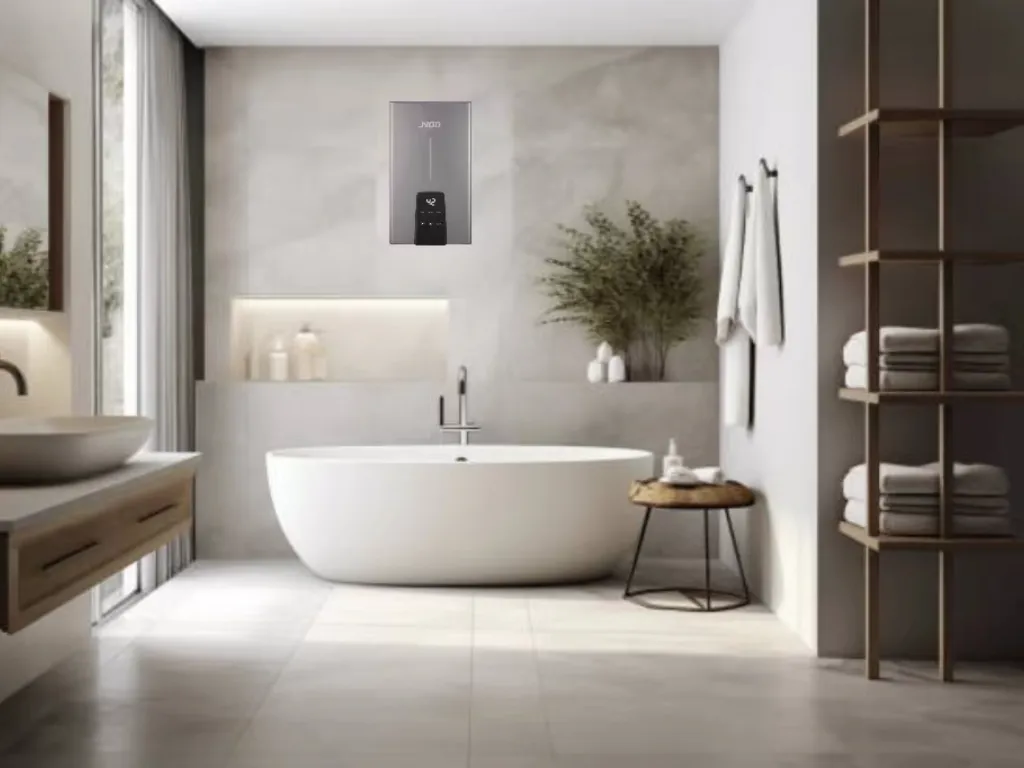
Energy Efficiency
Energy efficiency is a critical factor for both commercial and residential water heaters, but the approaches differ. Commercial water heaters are designed for high efficiency to reduce operational costs in large-scale settings. They often feature advanced heat exchangers, insulation, and recirculation systems to minimize energy waste.
Residential water heaters also focus on energy efficiency, but the emphasis is more on reducing household utility bills. Many residential models are Energy Star certified, indicating they meet strict energy efficiency guidelines set by the U.S. Environmental Protection Agency. Features like programmable thermostats and high-efficiency burners are common in residential units to enhance efficiency.
Temperature
Commercial water heaters are meant to handle higher temperatures than residential ones. They can typically reach and maintain temperature levels up to 180°F (82°C). This is necessary for various commercial applications, which require hotter water, including restaurants for sanitization purposes or the need of enough hot water for multiple showers in hotels.
Mostly, residential water heaters have maximum temperature settings of around 120°F (49°C) to 140°F (60°C) because very high temperatures are dangerous at homes especially those with kids. However, comfort and safety are achieved by default putting the thermostat in most residential units at about 120 °F.
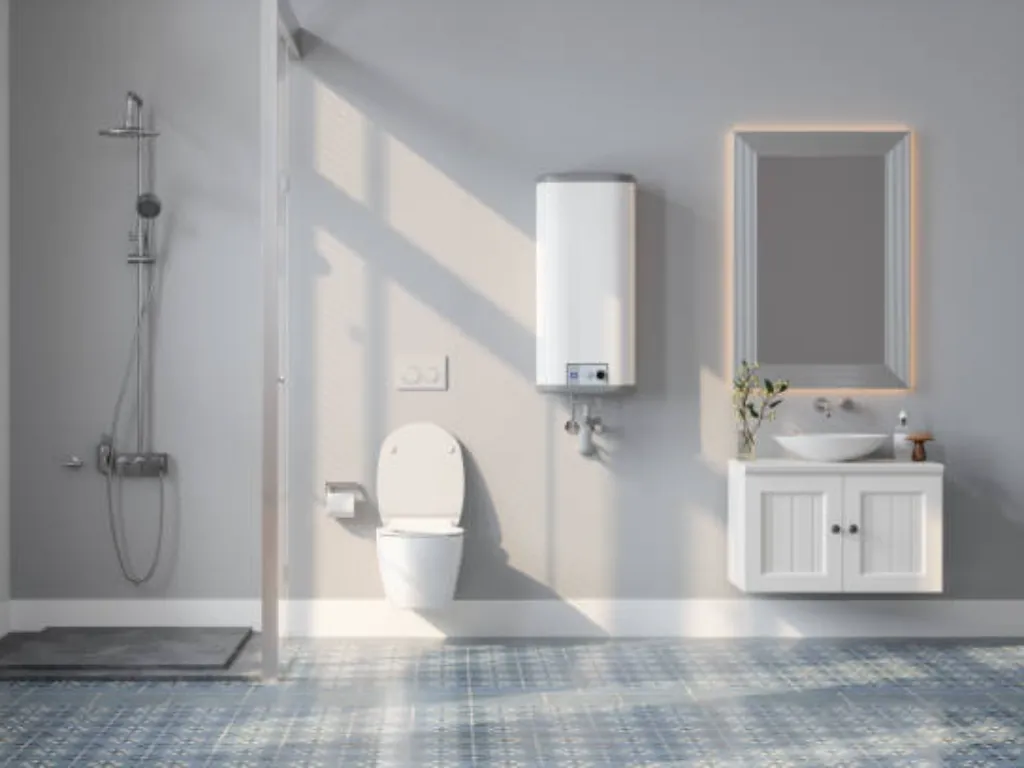
Water Pressure and Output
Water pressure and output are crucial in distinguishing commercial water heaters from residential ones. Commercial units are designed to maintain consistent water pressure and high output to ensure that multiple fixtures can operate simultaneously without a drop in performance.
Residential water heaters are built to handle the lower demand of household use. While they provide adequate pressure and output for typical home activities, they are not equipped to manage the simultaneous high demand seen in commercial settings.
Cost Comparison
Compared to residential units, the cost of commercial water heaters will be significantly more expensive due to their large gallon capacity sizes, greater BTU inputs and heavy-duty construction. Prices of commercial storage tank models usually range between $2000 and $10000. Besides that, there are also high-capacity models that can cost more than $20K if they can hold over 500 gallons. Installation costs for commercial heaters are also higher, considering the need for professional setup and compliance with various standards.
Residential models are relatively cheaper costing from $500 – $2,500. These can easily be fitted by homeowners themselves thereby reducing much on costs and basic maintenance activities can also be done by them.
Although tankless systems tend to be pricier upfront, they provide greater long-term savings through energy conservation. Normally, residential tankless water heaters sell for about $1000 – $3000 while the commercial ones range from $3000 – $7000. The higher initial costs are balanced by the low operational expenses since these devices only heat water when needed and do not suffer from standby heat losses like storage tank models. Hence, it is possible to save up to 30% on energy bills by using this type of heater thereby making it a more cost-effective investment in terms of longer life.
Durability and Lifespan
Commercial water heaters are generally more durable and have a longer lifespan compared to residential models due to their thicker tanks, robust components, and advanced corrosion protection. Typically, commercial water heaters last between 15 to 20 years, while residential units usually last around 8 to 12 years. The construction of commercial heaters enables them to handle continuous high-demand use, making them suitable for businesses.
For those considering an investment in a new water heating system, it’s crucial to research the best water heater manufacturers and brands to ensure quality and reliability.
However, regular maintenance, such as flushing the tank, inspecting anode rods, and checking for leaks, is essential to ensure their longevity. Without proper maintenance, their lifespan can be significantly reduced. Tankless water heaters, both commercial and residential, often exceed 20 years of service due to their design, which eliminates tank corrosion and reduces wear and tear. Yet, they also require routine maintenance like descaling to maintain efficiency.
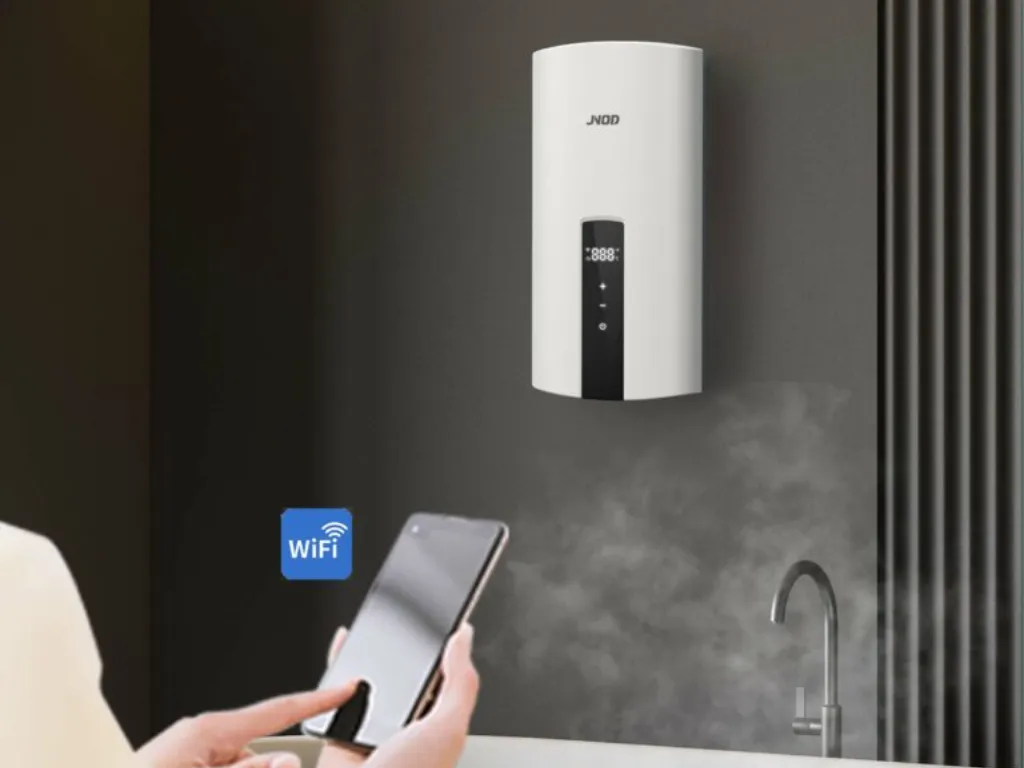
Compliance and Standards
Compliance and standards are essential for ensuring the safety and efficiency of both commercial and residential water heaters. Commercial water heaters must adhere to rigorous standards like those from the American Society of Mechanical Engineers (ASME) to handle high pressure and temperature safely. They also need to comply with local building codes, Department of Energy (DOE) efficiency regulations, and Environmental Protection Agency (EPA) emissions guidelines. These standards ensure commercial units are safe, efficient, and environmentally friendly. Residential water heaters must meet DOE energy efficiency requirements and local building codes, and often have certifications from organizations like Underwriters Laboratories (UL) to ensure safe operation. Adhering to these compliance measures guarantees that both commercial and residential water heaters provide reliable and safe performance while meeting regulatory standards.
Commercial Water Heater vs Residential: How to Choose?
Choosing between a commercial and residential water heating system depends on your specific needs.
Choose a Residential Water Heater if:
● Your household has typical hot water demands for activities like showers, dishwashing, and laundry.
● You need a cost-effective solution designed for moderate use.
● You prefer a compact unit that can easily fit into your home’s available space.
Consider a High-Capacity Residential or Commercial Water Heater if:
● Your home has high hot water demands, such as multiple bathrooms or a large family.
● You run a small business like a salon or a café.
● You need a solution that can handle increased hot water usage efficiently.
Choose a Commercial Water Heater if:
● You run a business or manage a building with constant and substantial hot water requirements, such as a hotel, restaurant, or apartment complex.
● You need a unit that can handle larger capacities, higher flow rates, and continuous usage without compromising efficiency.
● You require robust performance to meet the needs of multiple users simultaneously and ensure a steady supply of hot water during peak times.
Conclusion
Understanding the differences between commercial and residential water heaters is crucial for making an informed decision. While commercial units offer higher capacity, durability, and efficiency for high-demand settings, residential water heaters provide adequate performance and energy savings for home use. By evaluating your specific needs and considering the factors discussed, you can choose the right water heater to ensure a reliable hot water supply and efficiency.
Get Free Quote From JNOD
Ready to upgrade or install a new water heater? Contact JNOD for a free quote and professional advice tailored to your specific needs. Since 2009, JNOD has become one of the best electric water heater manufacturers, providing a range of electric tankless water heaters for various settings. Whether you need a commercial water heater for your business or a residential unit for your home, our experts are here to help you find the best solution.
